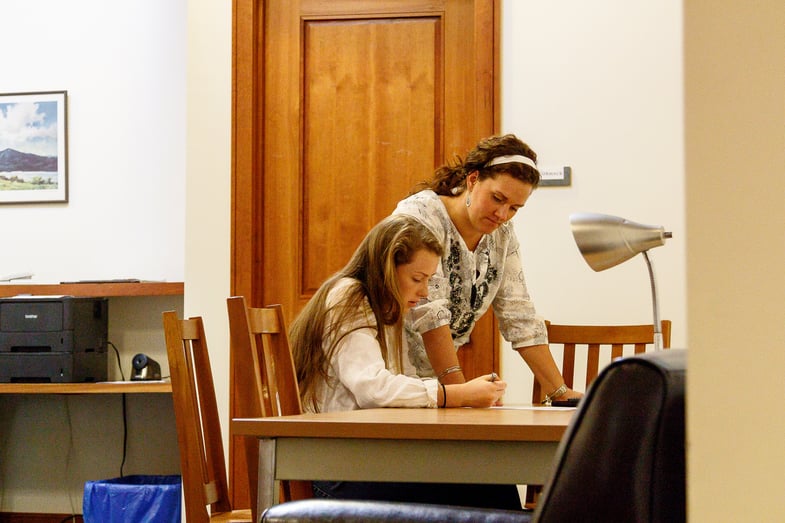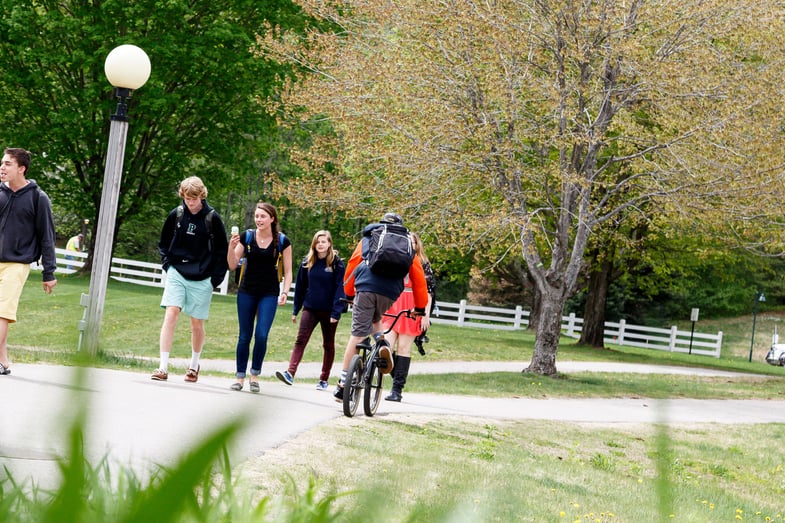In six short weeks roughly 360 students will arrive on Proctor Academy’s campus to start the 2015-2016 school year. The majority of these students will be returning to Proctor, while 130 students will be commencing a journey at Proctor with Wilderness Orientation.

Accompanying each of those students to campus will be parents, guardians, and families. Attending boarding school (even as a day student) is a big step for families to take, but one we believe affords students (and parents) incredible opportunities for growth. A recent excerpt from Julie Lythcott-Haims’ book, How to Raise an Adult: Break Free of the Overparenting Trap and Prepare Your Kid for Success published on Slate.com reinforces the value of boarding school.

Lythcott-Haims writes, “As parents, our intentions are sound—more than sound: We love our kids fiercely and want only the very best for them. Yet, having succumbed to a combination of safety fears, a college admissions arms race, and perhaps our own needy ego, our sense of what is ‘best’ for our kids is completely out of whack.” In the Price of Privilege, Madeline Levine describes three ways we might be overparenting:
- When we do for our kids what they can already do for themselves,
- When we do for our kids what they can almost do for themselves; and
- When our parenting behavior is motivated by our own egos.

This over-parenting in early adolescence has been linked to problematic development in emerging adulthood. Lythcott-Haims writes, “When seemingly perfectly healthy, but over-parented, kids get to college and have trouble coping with the various new situations they might encounter they can have real difficulty knowing how to handle the disagreement, the uncertainty, the hurt feelings, or the decision-making process. This inability to cope—to sit with some discomfort, think about options, talk it through with someone, make a decision—can become a problem unto itself.”

As we think ahead to the upcoming school year and the transitions new students and parents will be asked to make, we are thankful Proctor is able to serve as a safe transition ground toward increased independence for our students. Central to Proctor’s school culture, and wholly integrated into our curriculum, is the often under-appreciated skill of self-advocacy.
Understanding where resources and support exist, and knowing how to ask for directions, clarification, or assistance are skills most high school students are not required to develop to the same degree as boarding school students. Whether it is through an advisor, dorm parent, teacher, or coach, Proctor’s on- and off-campus programs explicitly teach students how to manage their newfound independence, while implicitly reinforcing these lessons by asking students to consistently step outside their comfort zones.
Proctor’s motto since its earliest years has been: Live to Learn. Learn to Live. In order to do either, a student must ‘own’ his or her educational journey. Parents, know you will not be the first to pull away from campus nervous about your son or daughter having newfound independence at boarding school. Know, also, you will not be the first to see an absolute transformation in your son or daughter’s self-confidence through increased self-advocacy skills because of the educational journey you son or daughter is on at Proctor.
Sometimes it takes a leap of faith to take flight.









